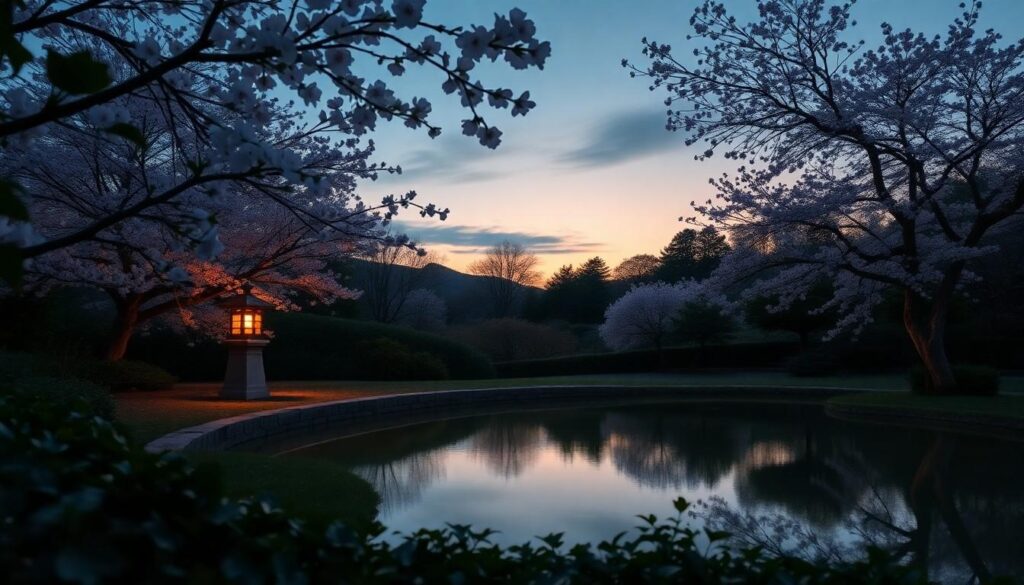Japanese names carry deep meanings and rich stories that often reflect the beauty and complexity of the culture. While many names symbolize hope or nature, some hold darker, more mysterious meanings—like those linked to death. These names aren’t just haunting; they’re powerful, unforgettable, and wrapped in centuries-old traditions.
We’re drawn to the allure of the unknown, and names with meanings tied to death spark curiosity and fascination. Whether you’re searching for a unique name for a character or exploring the symbolism behind these choices, understanding their roots can open up a whole new industry of inspiration. Let’s discover the intrigue and elegance hidden within Japanese girl names that whisper of mortality.
Exploring Japanese Girl Names Meaning Death
We’ll see that Japanese girl names with death-related meanings are rare but undeniably captivating. Many names draw from kanji characters associated with darkness, finality, or the afterlife. Sometimes these names use kanji like 死 (shi, “death”) or 亡 (bou, “deceased”) as a base. You might notice names such as Shiho or Shinobu can appear ominous depending on their kanji spellings. Some writers choose characters representing “darkness” (闇, yami) or “afterlife” (冥, mei) to subtly evoke mortality in fictional names.
Not every name directly states “death”—many allude to it with kanji meaning “end” (終, owari), “loss” (失, shitsu), or “nothingness” (無, mu). Others prefer metaphors, choosing kanji for “withered flower” (枯花, kofana) or “silent night” (静夜, seiya) to describe themes of passing and impermanence. Our observations show that modern parents avoid these somber names for real children, but writers and creators often select them for powerful symbolism.
Writers and artists blend these kanji creatively to create new names for characters with tragic backstories or supernatural connections. Sometimes, these names become signatures in manga, anime, or games. We encounter this intersection of language and story the most in fiction, not real life, because Japanese culture values positivity and longevity in actual naming customs.
Let’s keep in mind that understanding these nuanced meanings gives us tools to deepen our own creative projects—melding authenticity with mystery when we name a character who walks between life and death.
Understanding the Symbolism of Death in Japanese Culture

Death in Japan isn’t just an ending; it’s woven into spiritual beliefs and daily language, influencing everything from ceremonies to the arts. We see its influence in rituals, traditions, and even the way people name their children for fiction or heritage.
Cultural Significance of Death in Japan
Spirituality sits at the heart of how Japanese culture views death. Shintoism and Buddhism teach us that death marks a transition rather than a final goodbye. Spirits, known as yūrei, live on in stories and customs. Names like Reiko, meaning “spirit child”, and Yuriko, meaning “ghostly child”, show how the belief in an afterlife and spirits is deeply embedded in our culture.
Seasons tie closely to the theme of mortality. Autumn, for instance, represents the fading of life, so names like Kaede, meaning “maple leaf”, reflect both natural decay and beauty. Cultural references go further, linking elements from nature—like Yuki (snow), Kaze (wind), and Mizu (water)—with a poetic acceptance of the life cycle’s end.
We notice how darkness, stillness, and sorrow also serve as verbs and metaphors for death. Whether you look at names like Yami (“darkness”) or Kanashimi (“sorrow”), you’ll find death portrayed as a serene, almost gentle experience in literature and tradition.
How Death Influences Naming Traditions
Naming traditions in Japan use subtlety to express profound ideas about death. Many names rely on kanji, using symbols and metaphors instead of direct references. Yoruha, for example, means “night leaf”, quietly hinting at the mystery of the unknown.
Sometimes, mythological places like Yomi, the Japanese underworld, appear in names to honor cultural stories and history. Choices like Tomoe, which means “to stop,” and Shizuka, meaning “silent,” aren’t just poetic—they reflect a quietly accepting view of death’s role in the human experience.
Names associated with death aren’t commonly used for children today, but authors and artists gravitate toward them for their depth and symbolic power. When crafting authentic characters or referencing tradition, we can draw inspiration from this nuanced approach, letting our naming choices tell silent stories about loss, transition, and the beauty of impermanence.
Examining Popular Japanese Girl Names Meaning Death

Some Japanese girl names stand out for embracing the theme of death, weaving rich symbolism with somber undertones. Let’s explore how each name brings a unique perspective to the concept of mortality.
Yami: Darkness and Death
Yami captures the sense of “darkness” in Japanese, directly linking to the unseen and enigmatic sides of death. This name shows up in stories and character lists when we want to evoke a feeling of mystery or the unknown—elements that naturally surround the subject of mortality. We often see Yami in fictional works to represent the depths or shadowy realms, making it a hauntingly beautiful choice for a name connected to death.
Shi: Direct Translation of Death
Shi leaves nothing to interpretation; as the direct translation for “death” (死), it symbolizes finality and the universality of life’s end. Rarely used as a given name in real life due to its starkness, Shi appears more frequently in literature, art, and even in composite names. We notice that writers choose Shi for characters who represent endings or profound change, underscoring the powerful and inevitable nature of death in Japanese culture.
Shinigami: Death Spirit References
Shinigami means “death spirit” or “death god,” which combines Shi (death) and Kami (spirit or god). Although we don’t find Shinigami used as a personal name, elements like “Rei” (spirit) in Reiko or “Yuri” (ghostly) in Yuriko create names with similar meanings. Our research shows that these names reflect spiritual beliefs about the afterlife, offering a softer, more mythic connection to death. Creators in anime and manga often turn to Shinigami-related names when building characters who embody or control the boundary between life and death.
Uncovering Uncommon Japanese Girl Names Linked to Death

Sometimes we find rare Japanese girl names that capture deeper or unusual meanings connected to mortality. These choices, rooted in kanji and poetic tradition, can evoke a range of feelings from tranquility to mystery. Let’s explore a few distinct names, each revealing a unique facet of death in Japanese culture.
Anshi: Peaceful Death
With “Anshi,” we see calmness wrapped in finality. The word combines “an” for peace and “shi” for death, so it can convey the idea of a serene passing. Although not officially recorded in most name lists, Anshi offers a gentle interpretation—one focused on the tranquility that can accompany an end.
Shiho: Protected by Death or Tide of Death
Choosing Shiho introduces a layered meaning shaped by kanji. Some spellings use “shi” for death and “ho” for protection, which produces the sense of being guarded through or by death. Different kanji can also turn Shiho into the “tide of death,” highlighting both change and inevitable cycles. The name isn’t always linked directly to death, but when it is, the meaning reflects powerful protection intertwined with mortality.
Shizuka: Quiet Death or Stillness
We encounter subtlety and poise with Shizuka. Typically this name means quiet or stillness, yet in the context of death, Shizuka can be taken as a reference to the stillness of the end. The kanji used form an image of gentle silence—almost a poetic nod to the way death often arrives, quietly and peacefully.
Investigating Kanji Variations for Death-Related Names

Let’s explore how different kanji pairings create deeply evocative Japanese girl names, each revealing nuanced layers of meaning connected to death and the afterlife. Kanji choices truly shape the atmosphere and intention behind death-themed names.
Shi (死): The Kanji of Death
We often see the kanji Shi (死) at the center of several names. Shi alone speaks directly to “death,” representing the absolute end that comes to us all. Some names, like Shiho (死穂), blend this symbol with “ho” (sail), capturing the image of a journey after life has ended. Others, such as Shiori (死織), combine death with the idea of guidance or weaving, inviting the sense of navigation through life’s final chapter. Shiina (死衣) stands out by linking “death” with “garment,” suggesting attire one might wear into death’s area.
Dark and Ominous Kanji Combinations
Many names blend kanji that deepen the atmosphere of mystery or finality. For instance, Kuroshi (黒死) unites “black” and “death,” calling forth images of the unknown and foreboding. The name Kurai (暗), meaning “darkness,” may not state death outright, but it closely circles the theme by implying what lies beyond light. Seen in names like Yami (闇), “darkness” becomes even more intense and enigmatic, pointing to realms and experiences that defy ordinary understanding.
Ambiguous Kanji with Death Interpretations
We recognize that not all names tied to death say so explicitly—many wrap their meaning in metaphor or supernatural elements. Reiko (霊子) translates as “spirit child,” layering the name with the idea of a soul lingering when life fades. Mythology reverberates in Yomi (黄泉), since it names the underworld, a space rich with cultural context about mortality. Sometimes, “shadow” becomes a powerful symbol, as in Kage (影), by referencing the inevitable transition from light to darkness. Names like Shinu (死ぬ), which means “to die,” point bluntly to the unavoidable outcome we all share.
Each kanji combination doesn’t just create a name—it brings a distinct shade of meaning to the Japanese view of death, wrapping stories, fears, and hopes into just a few brushstrokes.
Addressing the Use of Death-Related Names in Modern Japan

These names can spark curiosity, but their place in modern Japanese society is pretty limited. Most parents prefer names that wish for happiness or success, so names meaning “death” stand out as rare and striking choices.
Contemporary Trends and Acceptability
Right now, Japanese families almost never choose names like Shi or Shinu for their daughters. You’ll see parents picking names that symbolize new beginnings, hope, or beauty instead. Names tied to death remain mostly in stories and poetry where they add dramatic flair or capture a somber mood. Artists and writers love their evocative edge, but you just won’t meet a real-life Yuriko or Shiori with kanji spelling out “death” unless you’re reading fiction. Trends keep moving in the direction of positive and uplifting names—reflecting the belief that a name shapes a person’s path.
Famous Figures and Fictional Characters
Writers and animators often lean into death-related names to highlight spiritual themes or signal a character’s dark side. In manga and anime, the term Shinigami—literally “death god”—shows up everywhere from “Death Note” to “Bleach,” giving characters supernatural authority over life and death. We notice names like Reiko (“spirit child”) or Yami (“darkness”) attached to ghosts or powerful spirits. Fictional girls with names like Setsuka (“momentary blossom”) hint at tragedy or fleeting beauty, which helps storytellers create depth and tension.
Social Perceptions of Death-Related Names
Across Japan, death isn’t always seen as something negative—it’s often viewed as one part of a greater life cycle, especially with Buddhist and Shinto roots. But, most people still feel uncomfortable using names that plainly reference death for everyday use. In novels, art, and folklore, these names can symbolize resilience, transformation, or acceptance of fate. We see them less as taboos and more as dramatic tools, but there’s still a strong tradition that favors names promising luck and good fortune for real children. In day-to-day life, the preference lands firmly on the side of positivity, while the poetic and philosophical value of death-related names remains mostly in creative or spiritual circles.
Comparing Death-Themed Names with Other Japanese Girl Names

Japanese girl names span from bright symbols of vitality to quiet reflections on mortality. Let’s see how names meaning death stack up against those that honor life, beauty, and powerful folklore.
Contrasting Life Affirming vs. Death Infused Names
Life affirming names like Sakura, meaning cherry blossom, celebrate beauty and the fleeting joy of spring. Hana stands for flower and brings images of blooming gardens and new beginnings. We see Yui, which means tie or bind, representing connection and unity in relationships.
Death infused names offer a different kind of depth. Shi, translating directly to death, evokes both finality and the universal experience of endings. Shiori, meaning woven death, invites imagery of complexity and grace, while Yami, representing darkness, expresses mystery and the unknown. Most parents today favor uplifting names such as Hana and Yui for their daughters, while writers and artists often choose names like Shi or Yami for characters with somber or mystical themes.
Here’s a quick comparison:
| Name | Meaning | Theme |
|---|---|---|
| Sakura | Cherry blossom | Life affirming |
| Hana | Flower | Life affirming |
| Yui | Tie, bind | Life affirming |
| Shi | Death | Death infused |
| Shiori | Woven death | Death infused |
| Yami | Darkness | Death infused |
Symbolic Names from Japanese Folklore
Japanese folklore enriches names with a blend of fear, awe, and reverence for the afterlife. Yomi refers to the underworld, tying myth to the journey after death. Our stories often mention Shinigami, which translates to death god, seen as a guide for souls in both traditional beliefs and modern pop culture.
Enma appears frequently in legends—he rules the underworld and symbolizes judgment and the fate of souls. Meanwhile, Kage means shadow and hints at life’s dual nature: present but always accompanied by the possibility of loss. Our folklore based names, whether Yomi or Enma, carry a mythic weight that appeals to storytellers building worlds filled with spiritual depth and drama.
Conclusion
Exploring Japanese girl names with meanings tied to death opens up a industry of poetic symbolism and cultural depth. These names invite us to reflect on themes of impermanence and transformation that are central to Japanese tradition and storytelling.
By understanding the nuances behind each name we gain fresh inspiration for creative projects and a deeper appreciation for how language shapes our perceptions of life and mortality. Whether we’re crafting characters or simply fascinated by the beauty of Japanese naming, these somber yet elegant names remind us of the enduring power of words.
Frequently Asked Questions
What gives Japanese girl names related to death their meaning?
Japanese girl names related to death often draw from specific kanji characters symbolizing darkness, finality, the afterlife, or sorrow. The chosen kanji pairings give each name its unique, somber meaning, layering in cultural stories and poetic symbolism.
Are death-related Japanese girl names common for children today?
No, names directly referencing death are quite rare for children in modern Japan. Most parents prefer positive names that symbolize happiness or success, reflecting cultural beliefs that a name shapes a person’s future.
Why do writers and creators use Japanese names with death meanings?
Writers and creators often use these names in fiction to convey deep symbolism, spiritual themes, or ominous character traits. They add dramatic flair and enrich storytelling by evoking feelings of mystery, transition, or resilience.
How does Japanese culture view death in naming traditions?
In Japanese culture, influenced by Shintoism and Buddhism, death is often seen as a transition rather than a definite end. Names related to death can reflect this belief, highlighting transformation, the afterlife, and the cyclical nature of existence.
Can a single Japanese girl name have both positive and dark meanings?
Yes. The meaning of a name can change depending on the kanji used. For instance, Shiho might mean “protected by death” or reference tides and journeys, mixing themes of mortality and protection.
What are some examples of Japanese girl names with death-related meanings?
Examples include Yami (“darkness”), Shi (“death”), Shinigami (“death spirit”), Anshi (“peaceful death”), Reiko (“spirit child”), and Yomi (“underworld”). The specific meaning depends on the kanji chosen.
Are there metaphorical Japanese girl names that allude to death?
Yes, some names use subtle or metaphorical language to evoke mortality, such as “withered flower” or “silent night.” These names reflect beauty, impermanence, and the natural cycles of life and death.
What role do kanji play in giving names their death-related meanings?
Kanji are Japanese characters that carry distinct meanings. By combining different kanji, parents or creators can craft names that evoke death, finality, or the afterlife, with nuanced interpretations depending on each kanji’s symbolism.
Are names related to death only used in negative contexts?
Not always. While they often evoke somber themes, names linked to death can also symbolize tranquility, transformation, or the acceptance of impermanence, especially in literature and art.
How do death-related names compare to life-affirming Japanese names?
Life-affirming Japanese names like Sakura (“cherry blossom”) or Hana (“flower”) celebrate beauty and new beginnings. In contrast, death-related names evoke mystery, finality, and spiritual depth, often used to create compelling, dramatic characters in stories.







